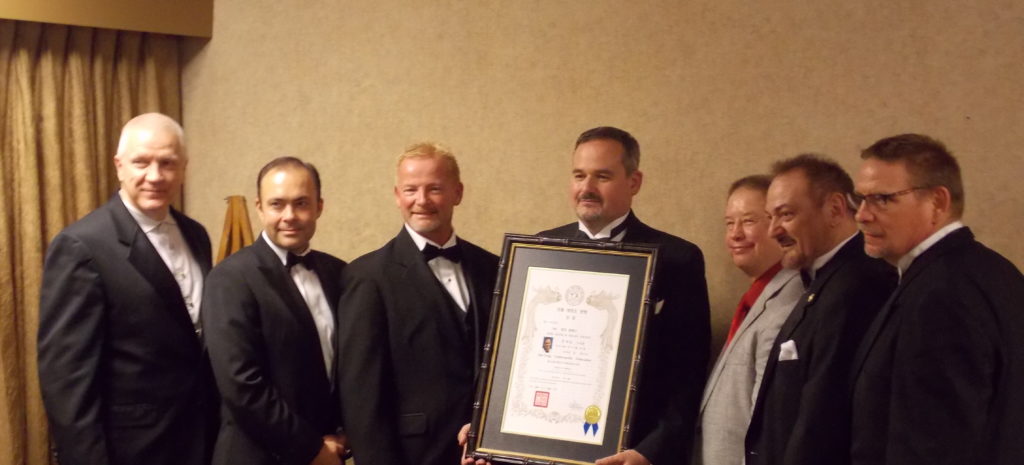by Jeffrey Helaney, IX
I recently read a post from a individual who used the title Shihan on his facebook page. (This is a Japanese title utilized for high ranking instructors.) He was lamenting (and rightly so) that there is not a lot of information written on the what is Grandmaster and the fact that have this title has seemed to proliferate over the last twenty or so years. It would be impolitic to speak to specific individuals, but the truth is that there is no single governing body or organization that has the right to confer this title. Moreover, there is a difference in the way different arts rank individuals. Japanese arts tend to have 10 Dan ranks, Korean arts generally stop at 9 Dan ranks, and Chinese arts most often do not use this type of ranking system.
So what exactly is a Grandmaster? General Choi Hong-Hi, founder of Taekwon-Do, defined this title in this way, “A true Grandmaster is a person who starts the arts at a very young age and continues it until their body will no longer allow it. Then they still contribute mentally to the art.” It is a basic definition but, by necessity there is no other way to define something so esoteric. Regardless of art, a Grandmaster is someone who has spent a lifetime contributing to the development of their art. What I can say with some confidence is any individual claiming the title of Grandmaster in many different arts is most likely less than what they claim. There simply is not that much time in life to master everything we would like to learn.
I have studied a number of different arts in my 47 years in the martial arts, but I am primarily a Korean martial arts style practitioner. I was honored with the rank of 9th Dan a few years ago by the International Jun Tong TaeKwon-Do Federation (IJTF). The promotion was a humbling experience. It was a realization that I was on the last leg of my journey in the martial arts. It was what would be my last promotion, but it would not be end of my education.
I can not speak to the conferment of titles for people whose arts originated in different cultures, however; there are two groups that have helped set the standard for titling of different titles used in Korean martial arts. The first is the International TaeKwon-Do Federation (ITF) and the second is the World TaeKwon-Do Federation (WTF). Over the years these organizations have fractured, however; their legacy lives on in a number of different ‘descendent’ organizations.
In many traditional TaeKwon-Do organizations instructors holding 1st to 3rd dan are called Boosabum (Assistant Instructor), those holding 4th to 6th Dan are called Sabum (Instructor), those holding 7th to 8th dan are called Sahyun (Master), and those holding 9th dan are called Saseong (Grandmaster). (Source: Choi, H. H. (1993): Taekwon-Do: The Korean art of self-defense ranks as Grandmasters and others as Senior Masters. This has broken down further over the years with the titles of senior instructor, junior master, and senior master added to many groups.
Organizations such as the Kukkiwon/WTF use a slightly different ranking system. 1st-3rd dan are considered instructors. Students who hold a 4th – 6th dan are considered Masters. Those who hold a 7th – 9th dan are considered grandmasters. This rank also holds an age requirement of 40+ (Source: Kukkiwon (2005). Kukkiwon Textbook. Seoul: Osung.) Even though the WTF adopted a different standard for conferring the title grandmaster than had been previously utilized, most individuals do not achieve the rank of 9th dan before the age of 50.
Titles, regardless of who confers them, are honorifics. It is important to research and look at the validity of organizations conferring rank and titles, but in the end ranks and honorifics are not as important as the skill and integrity of the person upon whom they were conferred. A true Grandmaster is not caught up in the honorific or other titles. He or she is just a student who has been around long enough to understand how much they have to learn.
Want to learn more? Contact Omaha Blue Waves Martial Arts at (402) 215-6003.

